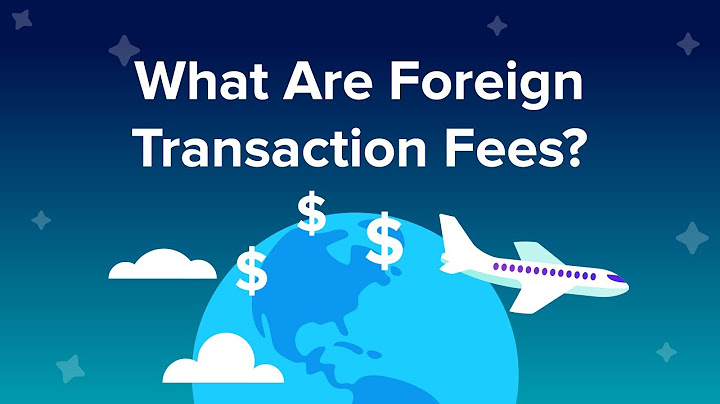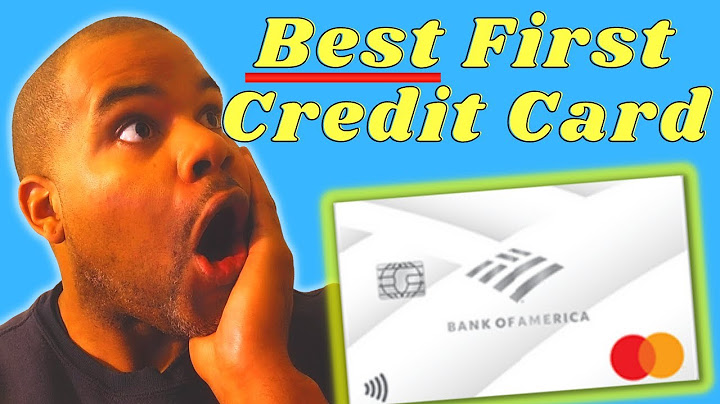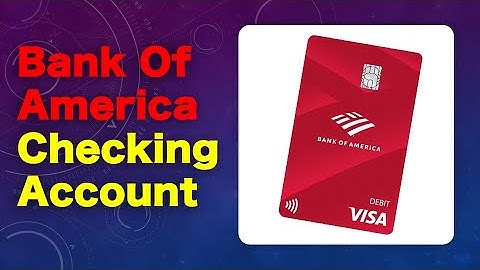This device is too smallIf you're on a Galaxy Fold, consider unfolding your phone or viewing it in full screen to best optimize your experience. Show
Editorial Disclosure We have not reviewed all available products or offers. Compensation may impact the order of which offers appear on page, but our editorial opinions and ratings are not influenced by compensation.
by Brittney Myers | Updated July 21, 2021 - First published on March 1, 2021  Image source: Getty Images I logged in one day to find my account had disappeared. Some of my credit cards get used at least once a week. Some of them haven't been used in months. No matter how often I use my cards, though, I check in on them regularly to make sure nothing untoward is going on with my finances. Imagine my surprise when I logged into one of my lesser-used accounts to find it -- gone. Between one check-in and another, the bank had decided to close my credit card account, all without bothering to notify me of the closure. On consideration, it wasn't a huge loss. It was a card I rarely used since I'd gotten other rewards cards that better fit my needs. Really, the only reason it was still open was because it had no annual fee. So it didn't hurt to leave it alone. But even so, I was certainly annoyed. How can they just close my account when I'd done nothing wrong -- and without warning? Why issuers close credit card accountsLegally, credit card issuers can close your account for basically any reason. It's their credit line. You're just borrowing it. The most obvious reason an issuer would close your account is if they think you've become a credit risk. This could mean you missed too many payments or you've exceeded your credit limit too often. Additionally, any recent negatives on your credit reports, even with other accounts, could end up with your credit card being closed. Even if you have pristine credit, you could still be seen as a risk. For example, if the issuer thinks you're trying to churn rewards or that you're manufacturing spend (using cash-equivalent transactions to boost rewards), your account could be closed and your rewards rescinded. In my case, I'd never made a late payment, nor was I ever anywhere near maxing out my card. I had received a sign-up bonus from the card when I first got it, but none of my spending could be construed as manufactured or indicative of churning. In fact, I'd hardly put any spend on the card at all in the last six months -- which was actually the problem. Credit card issuers want cardholders who, you know, use their cards. No-annual-fee cards that are sitting around gathering dust don't make the bank any money. In fact, since every account costs money for the bank to maintain, they're actually losing money on you if you're not using your card regularly. Additionally, banks have a finite amount of credit to lend. If the credit line they gave you isn't profitable, they could close your account to open up credit to lend elsewhere. Don't issuers have to tell you they're closing an account?Perhaps the most perplexing part of the entire situation was that the issuer didn't even bother to send a letter to tell me they closed my account. It seems like the kind of thing that should be against the law -- but it's not. There are a lot of consumer protection laws around credit cards. Laws dictate how much interest they can charge, who can apply for cards, and even what kind of advertising credit card issuers can do. So far as communication goes, issuers have to notify you of changes to your interest rate or any major changes to your card terms or benefits. Oddly enough, however, closing your account for delinquency or inactivity doesn't -- legally -- fall under the realm of "major account changes." Sure, if your account is closed because you've defaulted, you'll probably get plenty of warning signs as the issuer tries to get you to pay your balance. Calls, letters, emails, smoke signals -- the works. But if the issuer closes your account because you just stopped using it, well, don't expect a Dear John letter. If you have a large rewards balance, you might get a courtesy note so you have time to save your rewards -- but that's entirely up to the issuer. It's best to keep any cards with large rewards balances active and in good standing. Or, better yet, use your rewards! It could very well end up as a "use it or lose it" situation. How to protect your accountsSince the issuers have full discretion about who they lend to -- and for how long -- there's no way to guarantee your credit cards stay yours forever. Even if you do everything right, the issuer could decide to eliminate a card product entirely and cancel the whole lot. In general, keeping your account in good standing will help ensure the issuer doesn't close it for misuse. Pay your bill on time every month, keep your balances low, and don't abuse the rewards policies. If you're concerned about having an account closed for inactivity, simply endeavor to use your card more often. A monthly recurring subscription, paired with automatic credit card payments, could be an easy way to keep a card active. This will also add to your positive payment history. Top credit card wipes out interest until 2024If you have credit card debt, transferring it to this top balance transfer card secures you a 0% intro APR for up to 21 months! Plus, you'll pay no annual fee. Those are just a few reasons why our experts rate this card as a top pick to help get control of your debt. Read our full review for free and apply in just 2 minutes. About the AuthorBrittney started her writing career in the world of science, putting her physics degree to good use. Her journey into finance started with building her personal credit, but soon grew into a borderline obsession with credit cards and travel rewards. For the last 7 years, she has enjoyed the ability to share her expertise with readers, as well as the opportunity to interview companies and individuals making an impact on our financial lives. She wholly believe most problems can be solved with the right research -- and a good spreadsheet -- and she specializes in translating complex financial topics into actionable advice to help educate and empower readers. Featured ArticlesWhy would Bank of America closed my credit card account?If you are not on board with any change that your card issuer notifies you about in the terms of your credit card account, it could go ahead and close your account. If you violated the terms of your card agreement in some fashion, that could also cause the bank to shut down your account.
Why did Bank of America close my account for no reason?You may not think it could happen to you. A bank generally can close your account at any time and for any reason—and sometimes without notifying you in advance. Reasons a bank may shut down your account include using your account very little or not at all, or bouncing too many checks.
Why was my credit card suddenly closed?Your account is in default.
If you've stopped making payments on your credit card, closing it may be the card issuer's way of keeping you from making any more purchases. This can also occur if you simply have too many late payments on your account, even if you catch up in time to avoid default.
Can you reopen a closed Bank of America credit card?American Express and Chase and are among the major issuers that offer the possibility of reopening a closed account. Others, like Bank of America, Barclaycard, Citi and Discover, will not even consider it, though. For example, Discover's website notes, “You cannot reopen a card account once it has been closed.
|

Related Posts
Advertising
LATEST NEWS
Advertising
Populer
Advertising
About

Copyright © 2024 en.idkuu.com Inc.


















